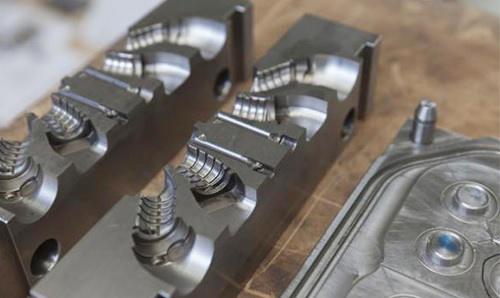In the past, companies that wanted to produce a plastic product firstly it had to create tooling or molds before producing a single end-use product. When considering a target quantity of less than 500 – 1000 units, the cost associated with an injection mold tool can become a obstacle. For example, an injection mold for a simple small part can easily reach into the $10,000+ range. If the part is larger, say something that requires some complexity in the tool design the tooling costs could easily reach $100,000+. Also, the wait time for a mold to be fabricated can stretch from 12 up to 24 weeks depending on its size and complexity.
All of this makes it very difficult to expect the expense and lead time of an injection mold for low volume production runs.
This is where 3D printing for low volume production
3D printing—additive manufacturing—was originally designed for rapid prototyping. But now, it is used for actual manufacturing. The 3D print allows customization, design freedom, easier assembly, and for the small manufacturer, it allows for low cost, low volume production.
3D printing is reshaping product development and manufacturing. Using 3D printing, to fabricate production, end-use parts has become an increasingly mainstream operation. AM creates custom, complex production parts in low volumes faster than traditional manufacturing processes.
3D print benefit for small production
For a small manufacturer, the most expensive and labor intensive part of product development is the production of the tooling. 3D printing technology doesn’t require tooling and is capable of producing complex geometries. Ideal for small volumes of custom parts, and can produce lightweight structures and components with complex internal features, with the same durable thermoplastics available in traditional manufacturing methods.
3D printing manufacturing is a good option for small-batch or low-volume production in many aspects of the industry. Deed3D offers 3D printing’s design freedom, coupled with strong engineering-grade thermoplastics, like ABS and ULTEM™ resin, to create robust parts ideal for functional prototyping and production, that either can be test direct or be an end-use parts.
For more information go to www.deed3d.com
